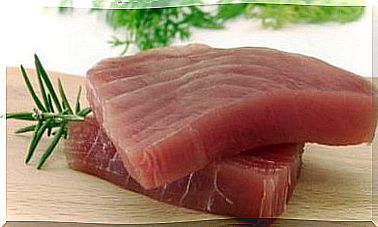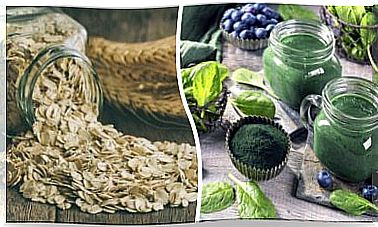6 Natural Alternatives To Cow’s Milk That You Should Try
Plant-based milks have a very similar consistency to cow’s milk, they are rich in nutrients and do not contain lactose, so they are much more digestive
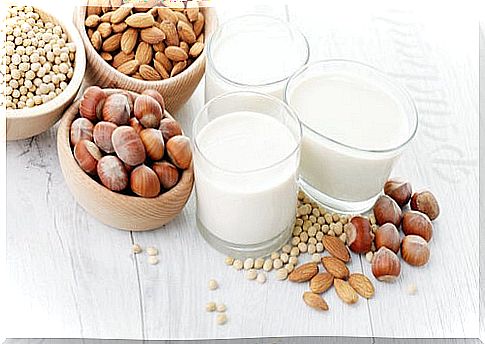
Many people have stopped drinking cow’s milk and its derivatives , not only because they are very difficult to digest, but because they have a high fat content and sometimes generate intolerances . Taking into account that it is one of the greatest natural sources of calcium, there are those who have replaced it with supplements or other foods that contain it in significant quantities.
At present, goat’s milk has become one of the great substitutes for this product, since it is similar in many respects but with the difference of being easier to digest in the body. However, this is not so easy to acquire in the market and its derivative products are usually quite expensive.
The good news is that there are even healthier alternatives to replace it, either as a beverage or as a base ingredient for desserts and smoothies. Although they are not exactly milk, some drinks made with seeds, fruits and cereals can be excellent options. Would you like to know them?
6 natural alternatives to cow’s milk
Here are 6 natural and healthy alternatives to cow’s milk.
1. Soy milk
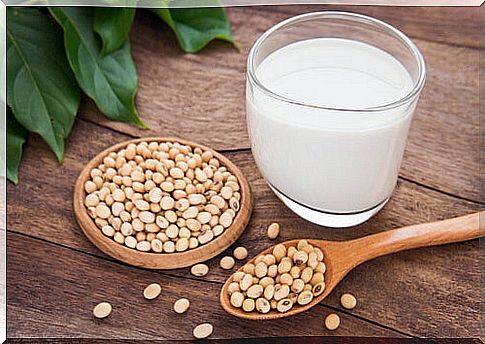
Soy milk is one of the most consumed vegetable drinks in the world, especially due to its high content of proteins and essential nutrients. It is obtained from milk and water and, like cow milk, it can be used to prepare recipes such as:
- Creams
- Sauces
- Cheese.
- Desserts.
- Shakes
- Ice creams.
It is one of the largest sources of essential amino acids, which makes it very easy to digest. In addition, it contains essential fatty acids, proteins, and isoflavones, which are plant estrogens that could be beneficial for women. It should be clarified that this has to be 100% organic in order to obtain all its benefits.
2. Coconut milk
Coconut milk is the liquid obtained from the grated pulp of the coconut. This should not be confused with coconut water, which is the one that is found naturally in green coconuts. This type of drink makes a significant contribution of fat, does not contain lactose or cholesterol and is a source of:
- Vitamins C, E, B1, B3, B5 and B6.
- Fiber.
- Minerals such as iron, selenium, sodium, calcium, magnesium, and phosphorus.
3. Almond milk
It is made in a similar way to soy milk and is characterized by a slight nutty flavor. It has no lactose, gluten or cholesterol, so it is listed as one of the healthiest. As it has a consistency similar to that of cow’s milk, it can be used in the same way and in the same recipes. Its main nutrients include:
- Vitamins A, D and E.
- Proteins.
- Omega 6 fatty acids.
- Minerals such as zinc, calcium, iron, magnesium, and potassium.
4. Cashew milk
It is prepared by putting cashews in water. Then when they soften, they dissolve and you get milk. It is rich in calories, so it is not the most recommended for those who are trying to lose weight. Despite this, it is healthy, because it provides nutrients such as:
- Vitamin B1 or thiamine.
- Minerals such as magnesium, selenium, potassium, calcium, iron, and phosphorus.
- Unsaturated fatty acids (oleic and linoleic).
5. Hemp milk
It is obtained after soaking hemp seeds in water and grinding them, in a similar way to soybeans. Hemp stands out as a significant source of protein and omega 3 fatty acids related to the health of the cardiovascular system. As if that weren’t enough, it contains significant amounts of:
- Vitamins A, E, B12 and D.
- Riboflavones.
- Minerals such as zinc, magnesium, iron, and phosphorus.
- 10 essential amino acids.
6. Oat milk
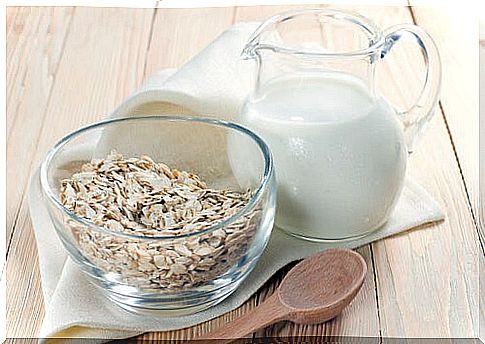
This type of vegetable milk is prepared by cooking oat flakes in water, and later processing them in a blender. It is one of the best alternatives for those who suffer from lactose intolerances, since it is low in calories, easy to digest and prepare, and rich in nutrients such as:
- Monounsaturated fats.
- Vitamins of group B.
- Vitamin D.
- Calcium.
- Fiber.
- Proteins.
Alternatives to Cow’s Milk: Final Comments
All of these alternatives to cow’s milk represent a healthy option for nutrition. You have already been able to verify the advantages of consuming these natural alternatives. So it is worth starting to try them to see that they are really excellent alternatives for digestion and general body care.



